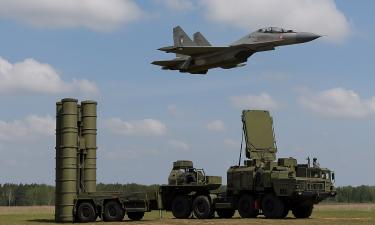Eurovision Song Contest opens in Greece

Welcome to the glitzy, kitschy Eurovision Song Contest, a place where nations battle for pop supremacy and musical tastes collide. And there's good news for Americans - the half century-old event is soon to be replicated on U.S. television.
Viewers tuning into Thursday's semifinal and Saturday's final can expect typically over-the-top performances replete with pyrotechnics, scantily clad dancers and, in one case, a ballerina emerging from a grand piano.
The annual contest, which sees nations vying for victory with live performances ranked by the viewing public, has been running since 1956, a forerunner of "American idol"-style music contests.
It remains a huge event, eliciting a potent mixture of passion and derision from Europeans. Posters and billboards bearing the Eurovision 2006 slogan "feel the rhythm" are everywhere in Athens, which is hosting the event because Greece won last year's contest in Kiev, Ukraine.
Organizers estimate more than 100 million TV viewers will watch Saturday's final from Athens' Olympic Indoor Arena, an event covered by 2,000 accredited journalists. Others around the world will follow the show live on the official Eurovision Web site, the AP reports.
Thirty-seven countries, from Iceland to Israel, are competing in Eurovision 2006, with 24 making it through to Saturday's final. Countries confirmed for the final are Greece, Switzerland, Moldova, Israel, Latvia, Norway, Spain, Malta, Germany, Denmark, Romania, Britain, France and Croatia. Another 10 will qualify from Thursday's semifinal.
Part of Eurovision's appeal is its equality. Tiny Andorra and giant Russia are equal on the event's stage - each has three minutes to win over viewers' hearts.
Subscribe to Pravda.Ru Telegram channel, Facebook, RSS!



